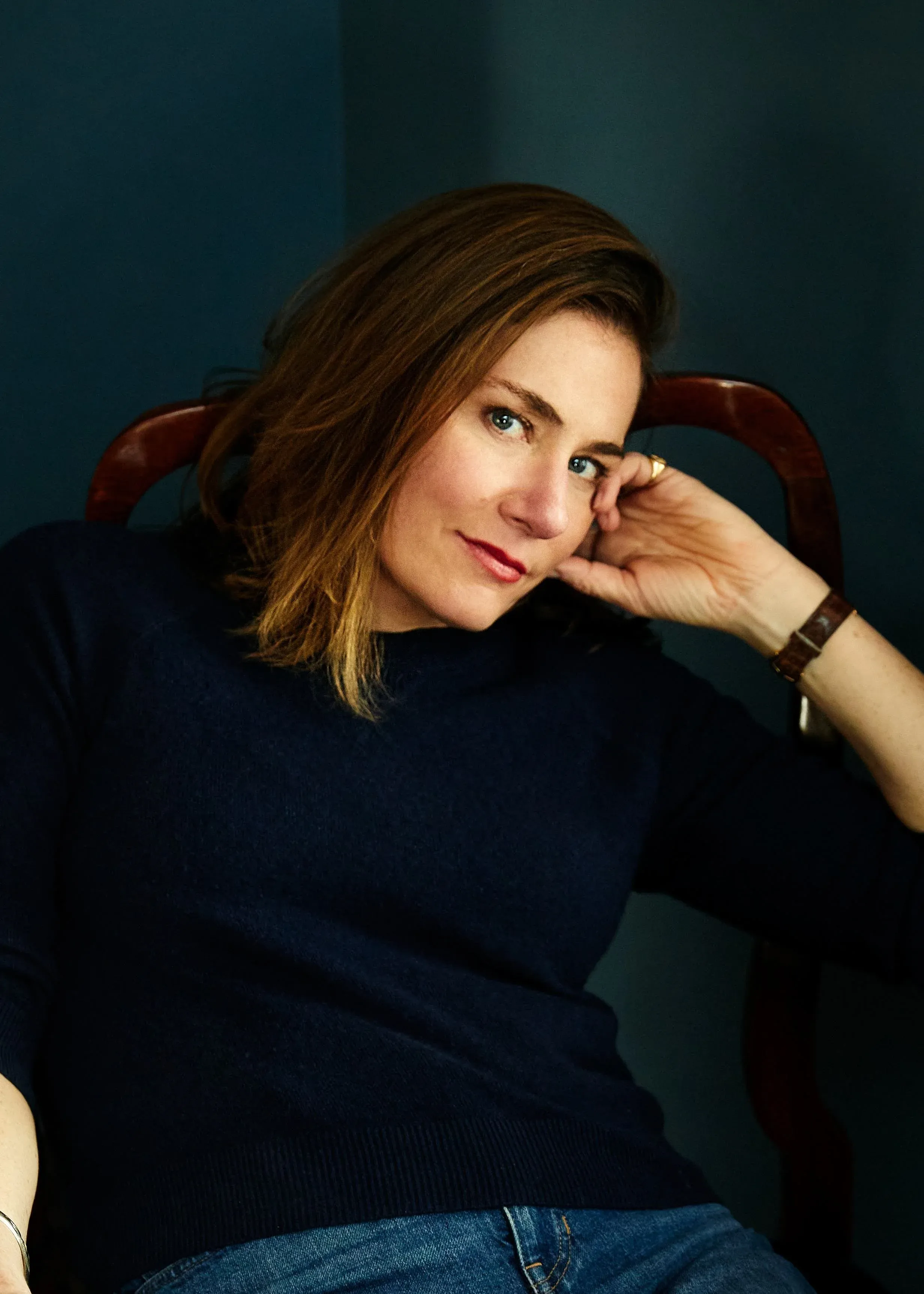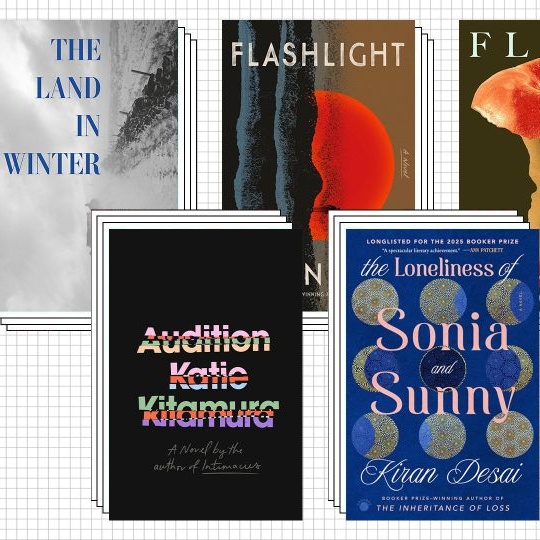Bluntly, author Caroline Palmer, who spent years working at Vogue, writes in her debut novel that there are two types of people you encounter at a fashion magazine: the “Workhorses”, the staffers who are usually lower-rung on the masthead but put in the hours at work, and the “Show Horses”, the names who have the right pedigree and a known last name.
In 2003, when Lauren Weisberger’s The Devil Wears Prada debuted—and was later immortalised by the fearsome Miranda Priestly (Meryl Streep) in the 2006 film—it became a cultural touchstone of millennial ambition. Almost two decades after its release, Palmer’s debut carries a similar echo, very reminiscent of the same world, the same time, and the same struggles but with a rather different kind of woman in her editorial assistant, Clodagh Harmon, or Clo.
Exploitative bosses, a high-stakes art heist, and spiralling anxiety pits barely begin to describe the anatomy of Workhorse. Unfolding at the brink of a vast but quietly changing pre-digital journalistic world of glossy print magazines, Workhorse acts as a time capsule of what once was without betraying today’s urgent questions about class, power, and the cost of fitting in.
Palmer’s protagonist, Clo, starts her career at the most prestigious fashion magazine in New York and quickly comes to a realisation about her place as a Workhorse—the kind of girl who hails from modest suburban upbringings, who believes if one works hard enough, it is possible to see upward growth and mobility.
She’s not a Show Horse, or one of today’s trust-fund babies—typically Ivy League-educated (or equivalent), effortlessly poised, hailing from some form of generational wealth. They are insiders, whose family names have the power to open doors even before they knock.
In Palmer’s clever roman-à-clef, Clo’s observations of this world, stemming from her status as a Workhouse, are incisive and laced with humour. Being a new editorial assistant, it is noted that “you immediately learn to pronounce the following: trompe l'oeil, atelier, décolletage, La Grenouille, and minaudière.” Or that “you don’t wear flats. You don’t slouch. You don’t carry around a water bottle”. In Workhorse, it often feels as though trouble is only ever one bad shoe choice away.
Where Andy Sachs challenged the blunt force of the early 2000s “hustle culture” of the city’s fashion elite (at least eventually), Palmer’s protagonist looks more inward or rather drowns in her own decisions in a seemingly cold, brutal but extremely glamorous world where it’s okay to brave the worst of it because the stilettos are worth it. Palmer, a veteran of the media and fashion world herself, writes with the coded veracity of a writer who has committed to memory all its casual cruelties, generational hierarchies, and the ways in which a single byline has the clout and power to tip the scales of belonging.

Much of Clo’s reverence for this coveted sphere, which she is on the fringes of, is somewhat concentrated on Davis Lawrence, her colleague, a socialite and the daughter of a once-famous actor (could it be Chloe Malle?). With Davis, Clo knows she has gained a mentor in a Show Horse. After an incident, their relationship evolves as the line between professional mentorship, friendship, and jealousy blurs. It is through their deeply complex and discordant friendship that Palmer investigates the allure of power, the obscure yet deeply prejudicial nature of class politics, privilege, wealth disparities, and nepotism. As Clo helps Davis following her accident, she starts slipping into a world that she has always coveted. Davis and Clo’s relationship remains paradoxical, often oscillating between resentment and gratitude, companionship and jealousy, sometimes bound together all at once.
It shouldn’t come as a surprise that almost no one in Workhorse is likeable, not even Clo, especially Clo, and that is one of the most riveting facets that make this novel unique, important, and interesting. Clo lies, manipulates, steals, and in a lot of ways is a workhorse that would do anything to belong and assimilate in the world of New York’s fashion elite. Palmer, it seems, has chosen not to water down the whims and darkest desires of her female protagonist. In Workhorse, female ambition is not packaged to be pretty and digestible. It’s messy and gritty and purposely so.
Around Clo and Davis are others who orbit closely, adding layers to the novel’s moral compass. Harry Wood, a talented journalist who is both opportunistic and charming, finds something of a fellow Workhorse in Clo, and in her sees both potential and malleability—the limits of which he often pushes, sometimes dangerously so. At the edges of this narrative, there are glimpses of Davis’s mother, portrayed as a star of mid-century fame who once delivered some of her most luminous and memorable performances during her time. As Clo climbs the ladder and relationships evolve, tensions arise and secrets unravel—and it is here that Workhorse gets darker and unforgiving.
Palmer's prose is funny, sharp, and unyielding. There’s no moralising and no contrived redemption arcs. In the end, this novel is an onlooker, a clear-eyed, non-judgmental witness to events. The passages here also dissect the tension between female ambition and moral expectations. We’ve long accepted ambitious but morally grey men throughout fiction—think Tom Ripley, Jay Gatsby, Don Draper. But when women have ravenous, ambitious hunger, they somehow eventually ought to have some moral grounding; they must be good or strive to be. In Workhorse, Palmer allows Clo to be small, complicit, and unvarnished, and in doing so investigates what female ambition can truly be when released from the demands of being virtuous.
Readers nostalgic for the early 2000s hum of newsrooms and print magazines, those who like rewatching The Devil Wears Prada or reruns of Sex and the City, as well as those intrigued by the turn-of-the-century years of low-rise jeans and rather high expectations, will find Workhorse deeply immersive. However, even for readers outside this spectrum, Palmer’s 500-odd pager is a riveting exploration of power and ambition and how they can shape the stories we tell about ourselves.
Caroline Palmer’s Workhorse is published by HarperCollins; ₹699





